
Find Help
More Items From Ergsy search
-

What is the sugar tax in the UK?
Relevance: 100%
-
Is the sugar tax applied to diet or zero sugar drinks?
Relevance: 96%
-
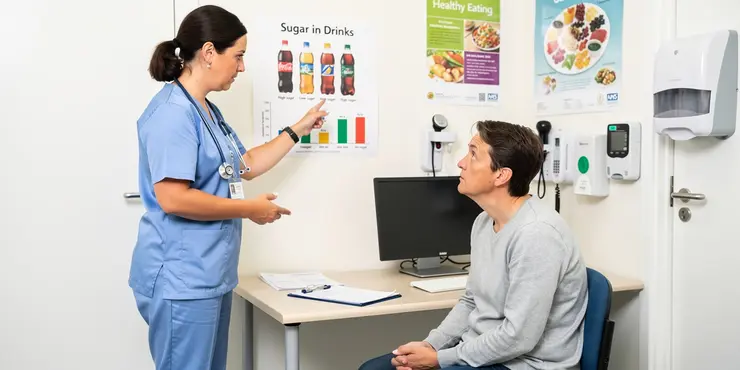
Has the sugar tax affected the sugar content in drinks?
Relevance: 96%
-

Who pays the sugar tax?
Relevance: 96%
-

What is the purpose of the sugar tax?
Relevance: 95%
-

What are the long-term goals of the sugar tax?
Relevance: 91%
-

Has the sugar tax been effective?
Relevance: 91%
-

Which drinks are exempt from the sugar tax?
Relevance: 89%
-

Does the sugar tax apply to small businesses?
Relevance: 88%
-

How does the sugar tax affect consumers?
Relevance: 88%
-

How is the revenue from the sugar tax used?
Relevance: 88%
-
How much revenue has the sugar tax generated?
Relevance: 85%
-

Has the sugar tax led to innovation in the drinks industry?
Relevance: 84%
-

How does the sugar tax align with public health strategies?
Relevance: 83%
-

What impact has the sugar tax had on obesity rates?
Relevance: 82%
-
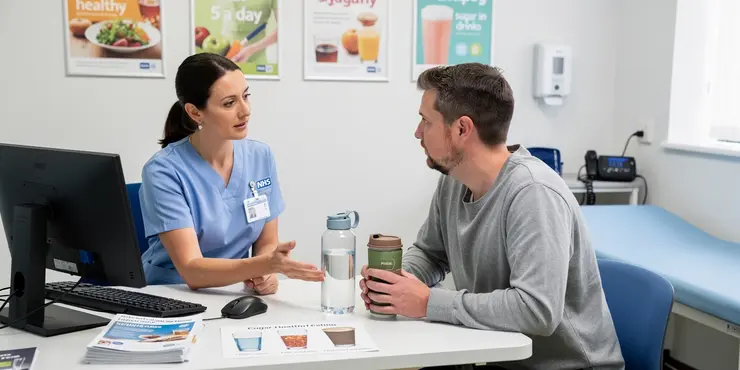
When was the sugar tax introduced in the UK?
Relevance: 72%
-
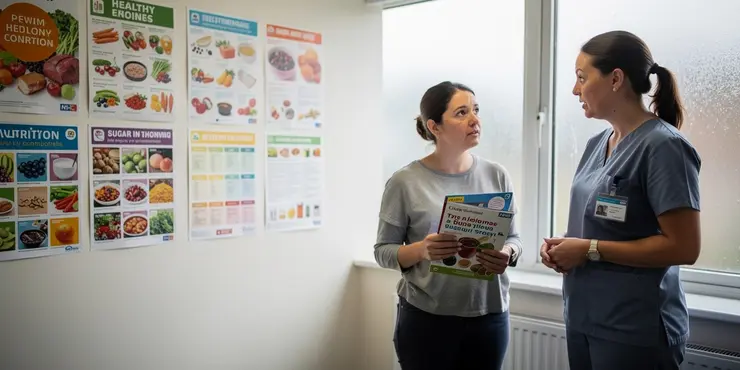
What are the rates for the sugar tax?
Relevance: 72%
-

How is the sugar tax applied?
Relevance: 72%
-
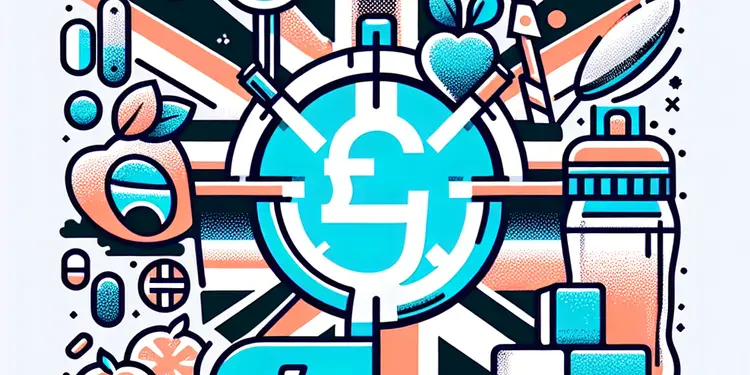
Are sugar substitutes healthier than regular sugar?
Relevance: 62%
-
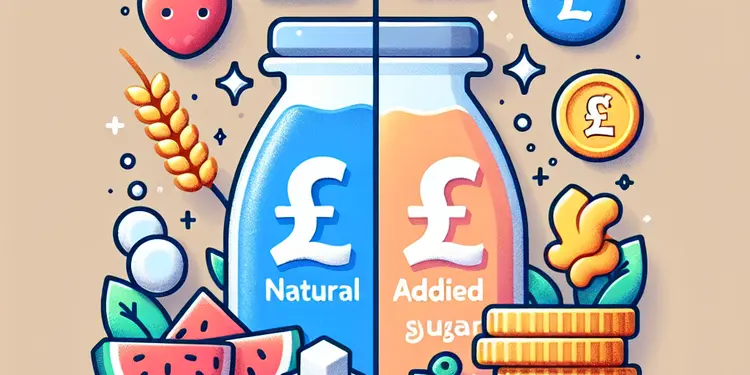
What is the difference between natural sugar and added sugar?
Relevance: 60%
-

Have any other countries implemented a sugar tax similar to the UK?
Relevance: 60%
-

What is the 'sugar crash'?
Relevance: 59%
-
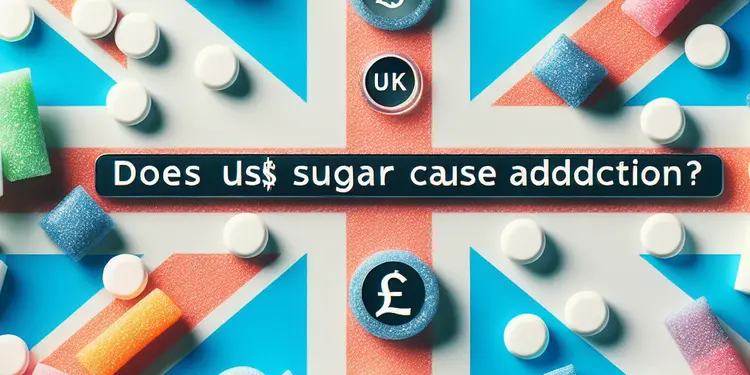
Does sugar cause addiction?
Relevance: 56%
-

Can I have sugar if I am diabetic?
Relevance: 56%
-
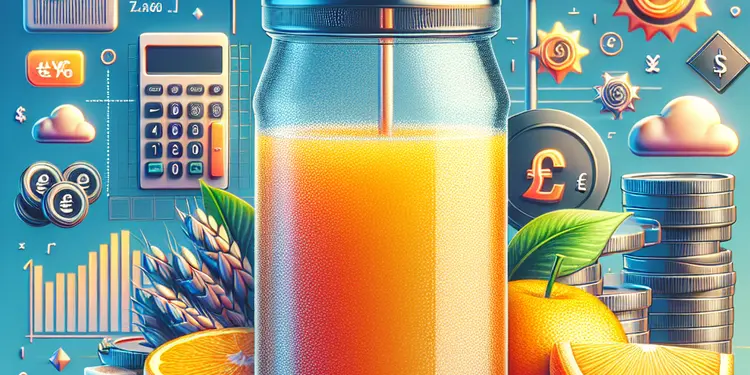
Is orange juice high in sugar?
Relevance: 56%
-

Is honey a better alternative to sugar?
Relevance: 55%
-
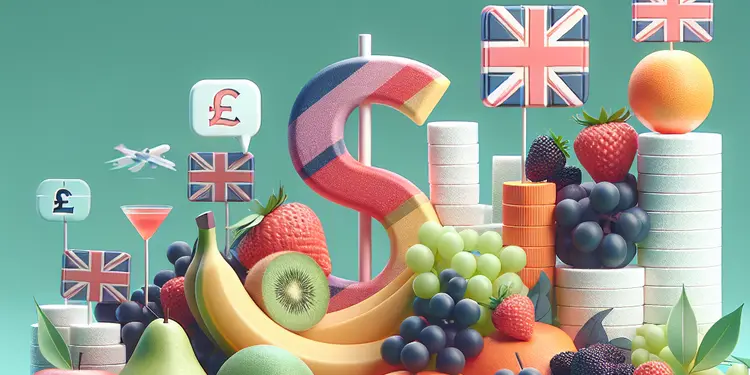
Is the sugar in fruit bad for you?
Relevance: 55%
-
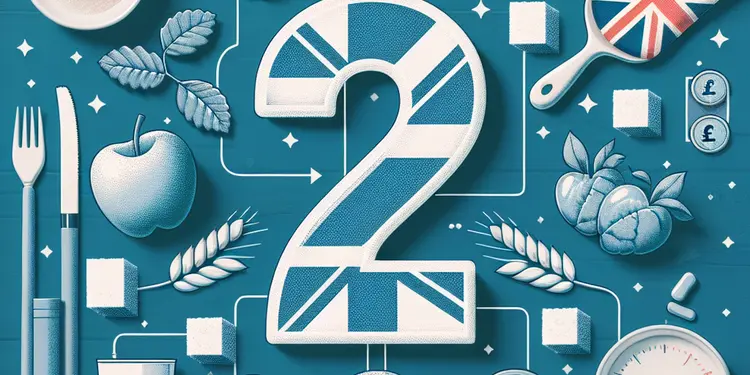
What is the role of sugar in a balanced diet?
Relevance: 54%
-

Why is it important to limit sugar intake?
Relevance: 53%
-

How can I reduce my sugar intake?
Relevance: 53%
-
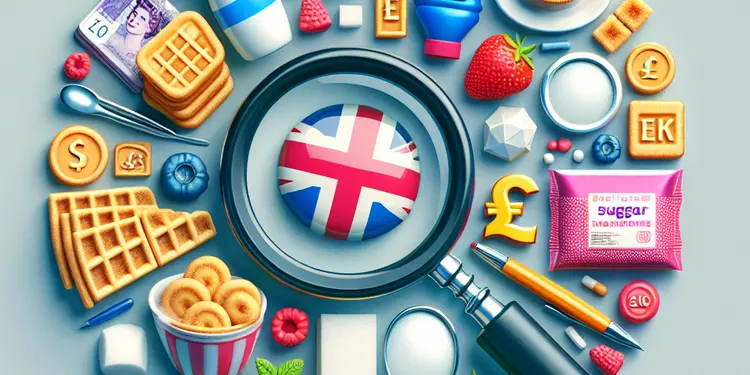
How do I determine how much sugar is in a product?
Relevance: 52%
-
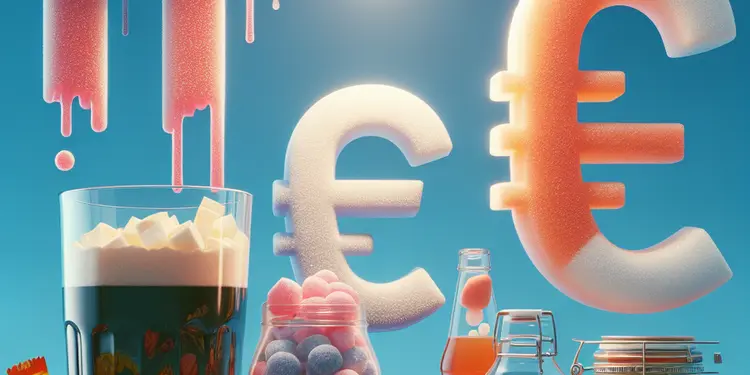
What are 'free sugars' and why should they be limited?
Relevance: 52%
-
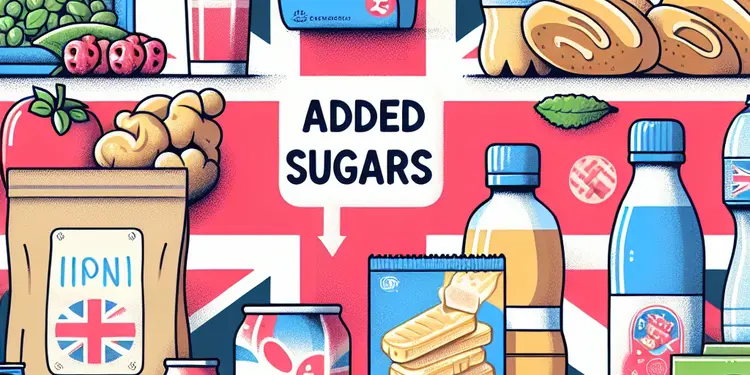
What are some hidden sources of added sugars?
Relevance: 52%
-

What is the recommended daily sugar intake for adults?
Relevance: 52%
-

How does sugar affect my energy levels?
Relevance: 51%
-

How does sugar impact mental health?
Relevance: 51%
-

How much sugar should I eat every day?
Relevance: 50%
-
Are there any criticisms of the sugar tax?
Relevance: 50%
-
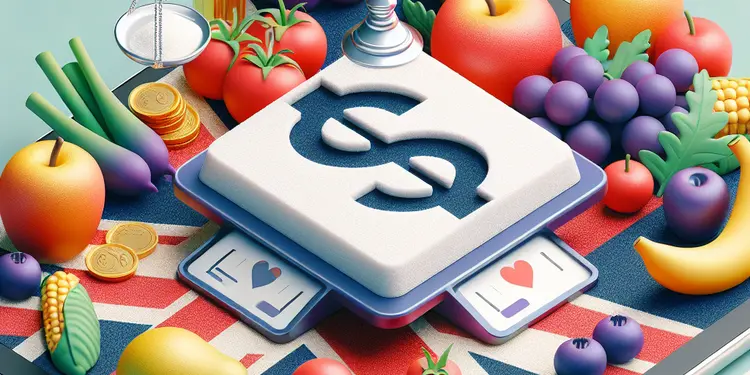
Can reducing sugar intake aid weight loss?
Relevance: 50%
-

Can Baxdrostat affect blood sugar levels?
Relevance: 49%
The Purpose of the Sugar Tax
The sugar tax, officially known as the Soft Drinks Industry Levy, was introduced in the UK in April 2018. This legislative measure aims to tackle high sugar consumption, which is a significant public health issue. By imposing a levy on sugary soft drinks, the government seeks to reduce sugar intake and address health problems associated with excessive sugar consumption, such as obesity, type 2 diabetes, and tooth decay.
Encouraging Manufacturers to Reduce Sugar Content
One of the primary goals of the sugar tax is to encourage beverage manufacturers to reformulate their products and reduce sugar content. By implementing a tiered tax system based on the sugar content per 100 millilitres, the levy incentivizes manufacturers to produce healthier drinks. The tax applies differently depending on sugar concentration, with higher rates for drinks containing more sugar. This structure encourages companies to develop lower-sugar alternatives to avoid higher charges, thus fostering innovation in healthier drink options.
Influencing Consumer Behaviour
Another significant purpose of the sugar tax is to influence consumer behaviour. By increasing the price of sugary drinks, the levy aims to discourage their consumption. When prices rise due to the tax, consumers may opt for healthier options or reduce their overall intake of sugary beverages. This behavioural shift is crucial to the public health strategy, as it addresses one of the root causes of dietary-related health issues. A reduction in sugary drink consumption is expected to lead to improved population health outcomes over time.
Raising Revenue for Public Health Initiatives
The revenue generated from the sugar tax supports various public health initiatives, particularly those targeting children's health and well-being. In the UK, the funds collected from the levy are reinvested in programmes designed to promote physical education in schools and improve access to healthier food options. By allocating these resources to educational and health-promoting activities, the government aims to create long-lasting benefits that extend beyond the immediate impact of reduced sugar consumption.
Evaluating the Impact
Evaluating the impact of the sugar tax is an ongoing process. Early indications suggest that it has been successful in encouraging manufacturers to reduce sugar content in drinks and has influenced consumer purchasing habits. However, continuous monitoring and research are necessary to assess long-term outcomes, including potential reductions in obesity and other sugar-related health conditions. By carefully analyzing these results, policymakers can make informed decisions about future public health strategies and the potential adaptation of similar measures to further improve community health.
Why We Have the Sugar Tax
The sugar tax started in the UK in April 2018. It works to help people eat and drink less sugar. Too much sugar is bad for our health. The tax makes sugary drinks cost more. This helps reduce problems like being very overweight, getting diabetes, and having bad teeth.
Getting Companies to Use Less Sugar
The sugar tax wants companies to use less sugar in drinks. Drinks with more sugar cost more tax. Companies want to pay less tax, so they try to make drinks with less sugar. This helps them make drinks that are better for us.
Helping People Make Better Choices
The sugar tax also helps people think about what they drink. When sugary drinks cost more, people might choose drinks with less sugar or drink less soda. This is good for our health in the long run because it helps us avoid health problems.
Using Tax Money for Health Projects
The money from the sugar tax helps with health projects, especially for kids. In the UK, this money helps schools teach kids about exercise and give them healthier food. This makes sure kids grow up strong and healthy.
Seeing If the Sugar Tax Works
It's important to check if the sugar tax is working. So far, it seems to help companies use less sugar. It also helps people choose drinks with less sugar. We need to keep watching to see how it helps with weight and health over time. This information helps us decide what to do next to keep everyone healthy.
Frequently Asked Questions
What is the sugar tax?
The sugar tax is a levy on sugary drinks and products intended to reduce sugar consumption.
What is the primary purpose of the sugar tax?
The primary purpose of the sugar tax is to reduce the consumption of sugary drinks to improve public health and combat obesity and related diseases.
How does the sugar tax reduce sugar consumption?
By increasing the price of sugary drinks, the sugar tax aims to discourage consumers from purchasing them, thereby reducing overall sugar intake.
Who implements the sugar tax?
Sugar taxes are typically implemented by local or national governments as part of public health policy.
When was the sugar tax first introduced?
Different countries have introduced sugar taxes at various times, with some starting as early as the 2010s.
Which products are commonly affected by the sugar tax?
The sugar tax usually applies to sugary drinks like sodas, energy drinks, and fruit juices with added sugar.
Has the sugar tax been effective in reducing obesity rates?
While conclusive evidence is still emerging, some studies suggest that the sugar tax has led to reduced consumption of sugary drinks, which may contribute to lowering obesity rates.
How do consumers respond to the sugar tax?
Some consumers opt for lower-sugar alternatives or reduce their overall intake of sugary drinks when prices increase.
Do all countries have a sugar tax?
Not all countries have implemented a sugar tax, but several nations have adopted it to address public health issues.
Are there any exemptions to the sugar tax?
Exemptions vary by region but may include products like milk-based drinks or beverages with very low sugar content.
How does the sugar tax impact beverage manufacturers?
Beverage manufacturers may reformulate products to contain less sugar or introduce new, lower-sugar product lines.
What are the financial implications of the sugar tax for consumers?
Consumers may face higher prices for sugary drinks, prompting them to seek out cheaper, healthier alternatives.
How is the revenue from the sugar tax used?
Revenue from the sugar tax is often allocated toward public health initiatives and education programs related to nutrition.
Is the sugar tax the same in every country?
No, the structure and rate of the sugar tax can vary significantly between countries and regions.
Are there criticisms of the sugar tax?
Critics argue that the sugar tax can be regressive, disproportionately affecting low-income individuals, and may not significantly change overall dietary patterns.
What health issues is the sugar tax aiming to address?
The sugar tax targets health issues like obesity, type 2 diabetes, and dental cavities by reducing excessive sugar consumption.
Can sugar tax lead to job losses in the beverage industry?
Some argue that the sugar tax could affect jobs within the sugary beverage industry, potentially leading to job losses.
Has the sugar tax led to reformulation of products?
Yes, some manufacturers have reformulated their products to contain less sugar in response to the tax.
What alternatives might consumers choose if sugary drinks become too expensive?
Consumers might switch to water, unsweetened teas, or drinks with artificial sweeteners as alternatives.
How does the sugar tax relate to public awareness and education?
The sugar tax often accompanies public awareness campaigns to educate consumers about the health risks of excessive sugar consumption.
What is the sugar tax?
The sugar tax is extra money that people pay when they buy drinks with a lot of sugar.
This helps make sure people drink less sugar and stay healthy.
You can use pictures or videos to learn more about the sugar tax.
The sugar tax is a way to make sugary drinks and foods cost more money. This is to help people eat and drink less sugar.
Why do we have a sugar tax?
The sugar tax is to help people be healthier. It makes sugary drinks cost more money so people will buy less of them. Too much sugar is not good for our bodies.
Here are some ways to think about it:
- The tax makes sugary drinks more expensive.
- With less sugar, people might have fewer health problems like toothaches or feeling sick.
- Creative ways to remember: think of sugar tax as a friendly reminder to pick drinks with less sugar.
The main reason for the sugar tax is to help people drink less sugary drinks. This can make people healthier and help fight obesity and other diseases.
How does the sugar tax help people eat less sugar?
The sugar tax makes drinks with lots of sugar more expensive. This means people might buy fewer sugary drinks.
When drinks cost more, people might choose drinks that have less sugar. This helps everyone stay healthy.
Use pictures or simple charts to understand how the sugar tax works. You can also watch videos to see how it helps people drink less sugar.
The sugar tax makes sugary drinks cost more money. This can help people buy less of them, so they drink less sugar.
To help understand this better, you can:
- Use pictures or images of sugary drinks to see what they look like.
- Try using an app that reads text out loud for you.
- Ask someone to explain it with simple words.
Who makes the sugar tax happen?
A sugar tax is a rule to make sugary drinks cost more money.
The government is in charge of the sugar tax. They make sure it works.
Tools like pictures or simple charts can help understand the sugar tax better. Asking someone to explain can also be helpful.
Sometimes, the people in charge of towns or countries make rules to add extra money to sugary drinks. They do this to help keep people healthy.
When did the sugar tax start?
Some places around the world started adding extra costs to sugary drinks. They began doing this in the 2010s.
Which products have extra cost because of the sugar tax?
The sugar tax makes sugary drinks more expensive. This can include:
- Fizzy drinks (like cola or lemonade).
- Energy drinks.
- Fruit drinks with added sugar.
If you find reading hard, try using:
- Text-to-speech tools to hear the words.
- Pictures to help understand the words.
- Reading with a friend or helper.
The sugar tax is money added to drinks with lots of sugar. This includes drinks like fizzy drinks, energy drinks, and fruit juices that have extra sugar.
Does the sugar tax help people lose weight?
The government has added a tax to sugary drinks. This is called a "sugar tax." The goal is to make people drink fewer sugary drinks. This might help people stay healthy and not become overweight. Let's look at if this is working!
- The sugar tax makes sugary drinks cost more money.
- When drinks cost more, some people buy them less.
- Drinking less sugar can help people not gain too much weight.
Need help understanding? Try talking to someone about it, like a teacher or family member. You can also use picture cards to help remember. Keep it simple and have fun learning!
There is still more to learn, but some studies show that the sugar tax has helped people drink fewer sugary drinks. This might help people have healthier weights.
How do people react to the sugar tax?
The sugar tax is money added to sugary drinks to make them cost more. It is like a rule to help people drink less sugar.
Some people might stop buying sugary drinks because they are too expensive. Others might look for drinks with less sugar or no sugar at all.
To help understand, you can:
- Use pictures or charts to show how some drinks cost more now.
- Talk about which drinks have less or no sugar.
When the cost of sugary drinks goes up, some people choose drinks that have less sugar. Others simply drink fewer sugary drinks.
Is there a sugar tax in every country?
No, not all countries have a sugar tax. A sugar tax is extra money added to the cost of sugary drinks and snacks.
To help understand this, you can:
- Ask someone to explain it to you.
- Use pictures or videos to learn more.
- Look for information with simple words.
Not all countries have a sugar tax. But some countries do have it to help people stay healthy.
Are there any exceptions to the sugar tax?
Some drinks do not get the extra sugar tax. These are:
- Fruit juices without added sugar
- Milk drinks with lots of milk
If you find it hard to understand this, try asking someone to read it with you. You can also try using a text-to-speech tool to listen to the words.
What drinks are okay can be different in each place. Some drinks, like those made with milk or with very little sugar, might be okay.
How does the sugar tax affect drink makers?
The government put a tax on sugary drinks. This means that drinks with a lot of sugar cost more money. This is to help people stay healthy.
Drink makers have two choices:
- They can keep making drinks with a lot of sugar, but these drinks will be more expensive for people to buy.
- They can change their drinks to have less sugar, so they cost less and people might want to buy them more.
Some helpful tools:
- Pictures: Pictures of different drinks can help show which have high or low sugar.
- Apps: Apps can scan drinks to tell if they have a lot of sugar or not.
Drink makers might change their drinks to have less sugar. They could also make new drinks with less sugar.
How does the sugar tax affect the money we spend?
The sugar tax is money people pay when they buy drinks with a lot of sugar.
Here is what it means for you:
- You might pay more for sugary drinks.
- You can save money by buying drinks with less sugar.
- The extra money from the tax helps to make healthy choices easier.
If you find reading hard, try these ideas:
- Ask someone to help you read tricky words.
- Use a tool that reads text out loud.
People might have to pay more money for sugary drinks. They might start looking for drinks that cost less and are healthier.
What is the money from the sugar tax used for?
The government gets money from a "sugar tax" when people buy drinks with a lot of sugar. This money helps in different ways:
- Schools: The money helps schools have sports and exercise activities.
- Health: It helps make people healthier and teaches them about eating well.
- Projects: It supports projects that make people move more and eat better.
If you want to learn more, you can ask a teacher or look at easy-to-read information on health websites.
Money from the sugar tax is used to help people stay healthy. It pays for health and nutrition education programs.
Is the sugar tax the same everywhere?
No, the sugar tax is not the same everywhere. Different countries have their own rules about the sugar tax.
Here are some tips to help understand:
- Look at one country at a time.
- Compare what each country does.
- Use pictures or charts to see how countries are different.
No, sugar taxes are different in each country and place. The amount you pay can change too.
Do some people dislike the sugar tax?
Some people think the sugar tax is unfair. They say it might make things harder for people who don’t make a lot of money. Also, it might not really make people eat healthier foods.
What health problems is the sugar tax trying to fix?
The sugar tax is trying to help with health problems that come from eating too much sugar.
Too much sugar can cause:
- Toothaches and cavities
- Weight gain and getting too heavy
- Diabetes, which is a sickness from too much sugar
To help understand better, try using pictures or videos. Talking with someone about it can also help.
The sugar tax helps people be healthier. It is for problems like being very overweight, having diabetes because of too much sugar, and having tooth problems from too much sugar. The tax makes people eat and drink less sugar.
Will a tax on sugar drinks mean fewer jobs for people who make these drinks?
Some people say the sugar tax might mean fewer jobs in companies that make sugary drinks. This could mean some people lose their jobs.
Did the sugar tax make companies change their products?
Yes, some companies changed their recipes to have less sugar because of the tax.
What other drinks can people buy if sugary drinks cost too much?
Here are some ideas:
- Water: It's healthy and has no sugar.
- Milk: It has calcium and is good for bones.
- Fruit Juice: Look for 100% juice with no added sugar.
- Tea: You can drink it hot or cold and add lemon for flavor.
- Sparkling Water: Bubbly and has no sugar. You can add a slice of fruit for taste.
To help choose, you can:
- Look for drinks with less sugar on the label.
- Use a shopping list to remember healthy drinks.
- Ask an adult or friend for help in choosing.
People might choose to drink water, tea without sugar, or drinks with fake sugar instead.
How does the sugar tax help people know more and learn?
The sugar tax is money added to drinks with lots of sugar.
This tax helps teach people about how sugar affects health.
When drinks cost more, people might pick healthier options.
Schools and doctors can use this to talk about healthy eating.
Helpful tools like pictures and videos can make learning about sugar easier.
The sugar tax is a type of money charge. It works with programs that teach people why too much sugar is bad for your health.
Useful Links
This website offers general information and is not a substitute for professional advice.
Always seek guidance from qualified professionals.
If you have any medical concerns or need urgent help, contact a healthcare professional or emergency services immediately.
Some of this content was generated with AI assistance. We’ve done our best to keep it accurate, helpful, and human-friendly.
- Ergsy carfully checks the information in the videos we provide here.
- Videos shown by Youtube after a video has completed, have NOT been reviewed by ERGSY.
- To view, click the arrow in centre of video.
- Most of the videos you find here will have subtitles and/or closed captions available.
- You may need to turn these on, and choose your preferred language.
- Go to the video you'd like to watch.
- If closed captions (CC) are available, settings will be visible on the bottom right of the video player.
- To turn on Captions, click settings .
- To turn off Captions, click settings again.
More Items From Ergsy search
-

What is the sugar tax in the UK?
Relevance: 100%
-
Is the sugar tax applied to diet or zero sugar drinks?
Relevance: 96%
-

Has the sugar tax affected the sugar content in drinks?
Relevance: 96%
-

Who pays the sugar tax?
Relevance: 96%
-

What is the purpose of the sugar tax?
Relevance: 95%
-

What are the long-term goals of the sugar tax?
Relevance: 91%
-

Has the sugar tax been effective?
Relevance: 91%
-

Which drinks are exempt from the sugar tax?
Relevance: 89%
-

Does the sugar tax apply to small businesses?
Relevance: 88%
-

How does the sugar tax affect consumers?
Relevance: 88%
-

How is the revenue from the sugar tax used?
Relevance: 88%
-
How much revenue has the sugar tax generated?
Relevance: 85%
-

Has the sugar tax led to innovation in the drinks industry?
Relevance: 84%
-

How does the sugar tax align with public health strategies?
Relevance: 83%
-

What impact has the sugar tax had on obesity rates?
Relevance: 82%
-

When was the sugar tax introduced in the UK?
Relevance: 72%
-

What are the rates for the sugar tax?
Relevance: 72%
-

How is the sugar tax applied?
Relevance: 72%
-

Are sugar substitutes healthier than regular sugar?
Relevance: 62%
-

What is the difference between natural sugar and added sugar?
Relevance: 60%
-

Have any other countries implemented a sugar tax similar to the UK?
Relevance: 60%
-

What is the 'sugar crash'?
Relevance: 59%
-

Does sugar cause addiction?
Relevance: 56%
-

Can I have sugar if I am diabetic?
Relevance: 56%
-

Is orange juice high in sugar?
Relevance: 56%
-

Is honey a better alternative to sugar?
Relevance: 55%
-

Is the sugar in fruit bad for you?
Relevance: 55%
-

What is the role of sugar in a balanced diet?
Relevance: 54%
-

Why is it important to limit sugar intake?
Relevance: 53%
-

How can I reduce my sugar intake?
Relevance: 53%
-

How do I determine how much sugar is in a product?
Relevance: 52%
-

What are 'free sugars' and why should they be limited?
Relevance: 52%
-

What are some hidden sources of added sugars?
Relevance: 52%
-

What is the recommended daily sugar intake for adults?
Relevance: 52%
-

How does sugar affect my energy levels?
Relevance: 51%
-

How does sugar impact mental health?
Relevance: 51%
-

How much sugar should I eat every day?
Relevance: 50%
-
Are there any criticisms of the sugar tax?
Relevance: 50%
-

Can reducing sugar intake aid weight loss?
Relevance: 50%
-

Can Baxdrostat affect blood sugar levels?
Relevance: 49%


